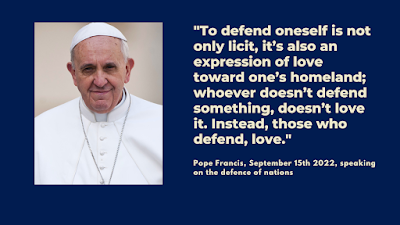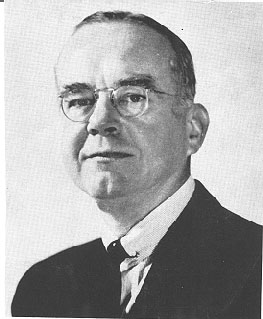The modern world is doubling down on the idea of women as warriors. This was foreshadowed as far back as the 1970s, with the advent of second wave feminism. The deal back then was that women could be shown bringing down men, as long as they remained glamorously and sexily feminine. You could see this on popular TV shows of the era like "Charlie's Angels" and "Wonder Woman".
 |
| Charlie's Angels - 1970s |
Since then, there have been multitudes of female characters kick boxing their way across movie and TV screens, with a decreasing emphasis on feminine glamour. That has now progressed to the idea that female warriors were common in real history not just in fiction. I had a lengthy debate with one person on social media who claimed, in all seriousness, that half of the Viking warriors were female (on the basis of one contested grave find). And now, unsurprisingly, a film ("The Woman King") has been released about the Agojie, an all female warrior unit which operated in the Kingdom of Dahomey on the west coast of Africa.
More on the film later. The first issue is why our culture thinks it so important to establish the idea of women as warriors. My first answer is straightforward. If you are a liberal, and you believe that the predetermined aspects of life, such as our sex, are a limitation on our freedom to self-define, then you will want to erase sex distinctions. One powerful way of doing that is to assert that men can be just as emotional and nurturing as women, and women just as capable as men of acting as warriors.
One of the disturbing consequences of holding such a belief is that it suggests that unless women can be shown to have such masculine qualities that they are somehow lacking. Women manifesting the best feminine qualities no longer suffices, as this will be thought to still support a distinction of sex. Everything comes to rest on the "girl boss" phenomenon. To put this another way, it will be assumed that supporting women means supporting a masculinised version of women.
 |
| Rey from Star Wars 2015 |
There is also a second possible explanation for the "women as warrior" ethos. There is an emphasis within Gnostic thought that "we are not our bodies". Instead of a positive picture of the material world as God's creation, in which aspects of the divine order inhere, Gnostics see the material world as a merely corrupted material form which has to be overcome. In this world view, our physical bodies do not point in a positive way to our ends or purposes as men and women, but are merely the limiting flesh caging our real selves. Our embodiment limits us, in this view, and therefore needs to be transcended.
And what about the Agojie? Well, it is true that the Kingdom of Dahomey did have such a female warrior corps. However, the film that has recently been released about the Agojie has highlighted some inconvenient truths about the Kingdom of Dahomey. It turns out that this kingdom would raid neighbouring areas, capture men and women, keep some of them as slaves, sacrifice some of them on an annual festival day and sell others to the North Atlantic slave trade.
The Kingdom of Dahomey existed in what is now the country of Benin from about 1600 to 1904. It was a militarised kingdom that focused considerably on slavery:
Both domestic slavery and the Atlantic slave trade were important to the economy of Dahomey. Men, women, and children captured by Dahomey in wars and slave raids were sold to European slave traders in exchange for various goods such as rifles, gunpowder, textiles, cowry shells, and alcohol.
Other war captives who were not intended to be sold to Europeans remained in Dahomey as slaves. There, they worked on royal plantations that supplied food for the army and royal court.
There was a history of human sacrifice using slaves.
The human sacrifice would happen once a year during the "Annual Customs" celebrations:
Since Dahomey was a significant military power involved in the slave trade, slaves and human sacrifice became crucial aspects of the ceremony. Captives from war and criminals were killed for the deceased kings of Dahomey. During the ceremony, around 500 prisoners would be sacrificed. As many as 4,000 were reported killed in one of these ceremonies in 1727. Most of the victims were sacrificed through decapitation, a tradition widely used by Dahomean kings, and the literal translation for the Fon name for the ceremony Xwetanu is "yearly head business".
The European who has been called "the greatest slave trader", the Portuguese/Brazilian Francisco Félix de Souza, held an honoured place in Dahomey, being awarded the status of chieftain. Even today there is a statue of him in the port city of Ouidah in Benin (he also has a plaza named after him and a museum).
The British attempted to suppress these practices in Dahomey in the mid-nineteenth century:
Dahomey became an adversary to the British Empire after the abolition of slavery during the 19th century. The British sent diplomatic missions to Dahomey, in an effort to convince King Ghezo to abolish human sacrifice and slave trading. Ghezo did not immediately concede to British demands, however he attempted to maintain friendly relations with the British by encouraging the growth of new trade in palm oil instead. In 1851, the Royal Navy imposed a naval blockade against Dahomey, forcing Ghezo to sign a treaty in 1852 that immediately abolished the export of slaves. However, the treaty was broken and slave trading efforts continued in 1857 and 1858.
Historian Martin Meredith quotes Ghezo telling the British,The slave trade has been the ruling principle of my people. It is the source of their glory and wealth. Their songs celebrate their victories and the mother lulls the child to sleep with notes of triumph over an enemy reduced to slavery.
Dahomey collapsed during the second Franco-Dahomean War that took place in the early 1890s. Despite being equipped with quality German guns, the Dahomey army could not match a much smaller French force. The Agojie did fight fiercely, but not very effectively:
Between 2,000 and 4,000 Dahomean soldiers—including both men and women—died during the seven-week war. Of the roughly 1,200 Agojie in fighting shape at the beginning of the war, just 50 or 60 remained ready for battle by its end. Comparatively, the French side lost 52 Europeans and 33 Africans on the battlefield.
A note to Melbourne readers. If you are sympathetic to the ideas of this website, please visit the site of the Melbourne Traditionalists. It's important that traditionalists don't remain isolated from each other; our group provides a great opportunity for traditionalists to meet up and connect. Details at the website.


